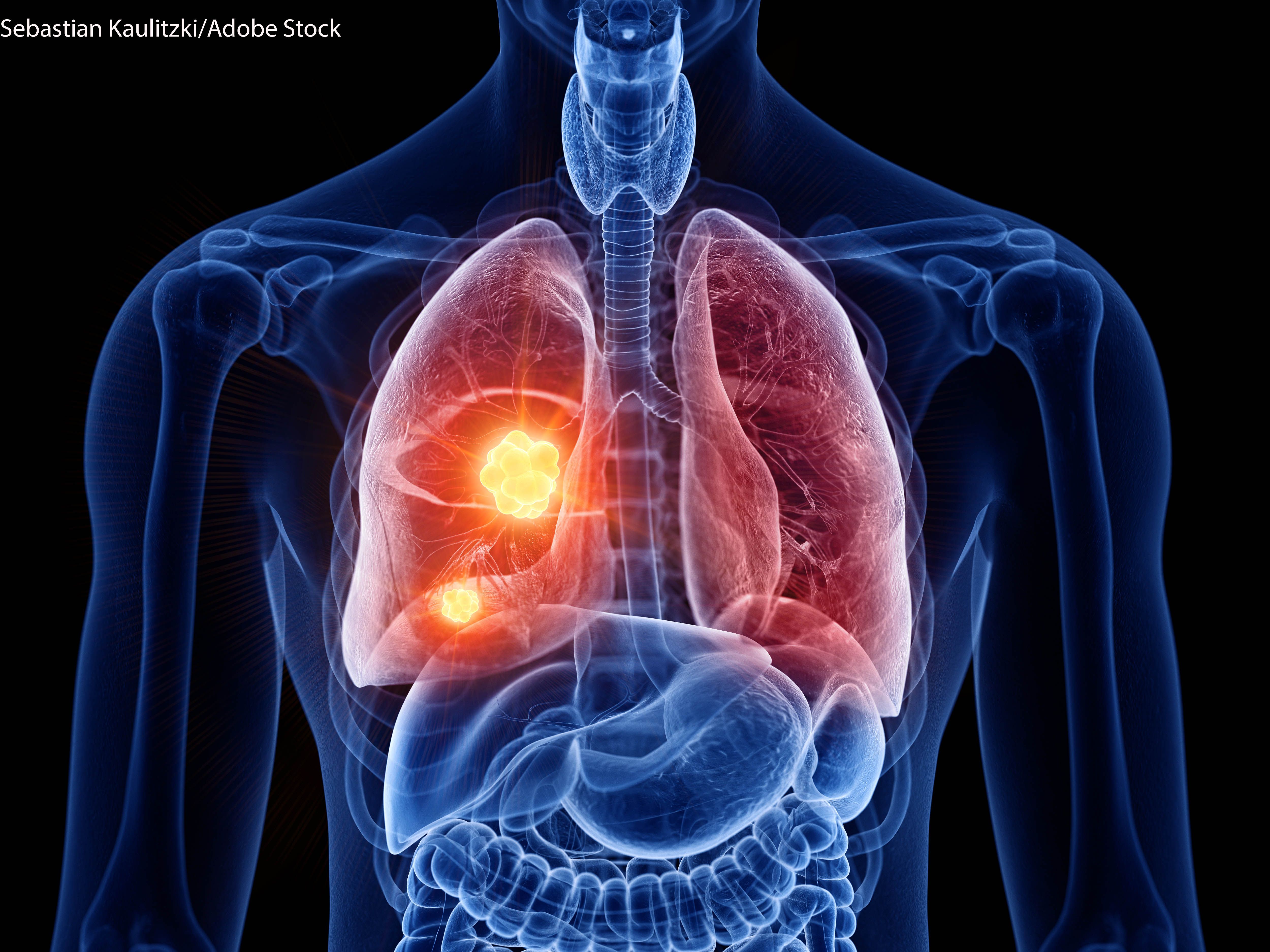
Dato-DXd Shows Favorable Benefit in EGFR-Mutant NSCLC

A combined cohort composed of patients from the TROPION-Lung01 and TROPION-Lung-05 trials showed a survival advantage with dato-DXd vs docetaxel.
In an interview with CancerNetwork®, Jacob Sands, MD, assistant professor of Medicine at Harvard Medical School, thoracic oncologist at the Dana-Farber Cancer Institute and investigator of the
He initially outlined the
Furthermore, Sands highlighted results from the TROPION-Lung05 trial, which was a single-arm trial that exclusively enrolled patients with actionable genomic alterations. Expressing that EGFR mutations were also expressed in a majority of patients in this trial, he suggested that these patients experienced the greatest benefit from dato-DXd.
He concluded by highlighting combined data from the EGFR-mutated disease cohorts of both trials, which the FDA used to support the approval of dato-DXd in EGFR-mutant metastatic NSCLC. He highlighted a median PFS of 5.8 months and a median OS of 15.6 months, which he expressed was favorable compared with docetaxel.
Transcript
[Dato-DXd] is another treatment option for patients [and] a new one as well. Patients who have [received] prior EGFR TKI and prior chemotherapy, the standard of care, are then looking at next-line docetaxel. We have a randomized trial of dato-DXd vs docetaxel in all comers [for NSCLC]. [A total of] 17% of patients who enrolled in that trial had tumors with actionable genomic alterations, and that is where we saw the greatest benefit.
To speak broadly about TROPION-Lung01, beyond just actionable genomic alterations, in the squamous cohort, we saw that it underperformed [vs] docetaxel. In the nonsquamous cohort, we saw statistically significant improvement in progression-free survival [PFS]; we saw a trend of improvement in [OS] that matches the PFS benefit but did not reach statistical significance, meaning that the confidence interval crossed 1. In that 17% group of those with actionable genomic alterations, that OS trend was much bigger. Among those in the actionable genomic alteration cohort, the EGFR-mutated [subgroup] represented the majority of those alteration groups in that subset.
TROPION-Lung05 was a study that was similar. It was a single-arm trial, but patients who had previously [received] targeted therapy and platinum-based chemotherapy then ended up [receiving] dato-DXd. Only [patients with] tumors with actionable genomic alterations [were] enrolled. Again, the piece of the pie that was the biggest was the one of EGFR-mutated [disease], and EGFR-mutated did look better than the [ALK-rearranged subgroup] as well.
I know the focus is really the EGFR group, per the recent FDA approval. We now have a cohort of essentially combining all EGFR [mutant subgroups] from TROPION-Lung01 as well as TROPION-Lung05, and within that, we see a median [PFS] benefit of 5.8 months and a median [OS] of 15.6 months. As far as how it compares to docetaxel, I’d say it compares favorably.
References
- Sands J, Ahn MJ, Lisberg A, et al. Datopotamab deruxtecan in advanced or metastatic non-small cell lung cancer with actionable genomic alterations: results from the phase II TROPION-Lung05 study. J Clin Oncol. Published online January 6, 2025. doi:10.1200/JCO-24-01349
- FDA grants accelerated approval to datopotamab deruxtecan-dlnk for EGFR-mutated non-small cell lung cancer. News release. FDA. June 23, 2025. Accessed July 28, 2025. https://tinyurl.com/mtay7ab9
- Ahn MJ, Tanaka K, Paz-Ares L, et al. Datopotamab deruxtecan versus docetaxel for previously treated advanced or metastatic non-small cell lung cancer: the randomized, open-label phase III TROPION-Lung01 study. J Clin Oncol. Published online September 9, 2024. doi:10.1200/JCO-24-01544
Newsletter
Stay up to date on recent advances in the multidisciplinary approach to cancer.



































